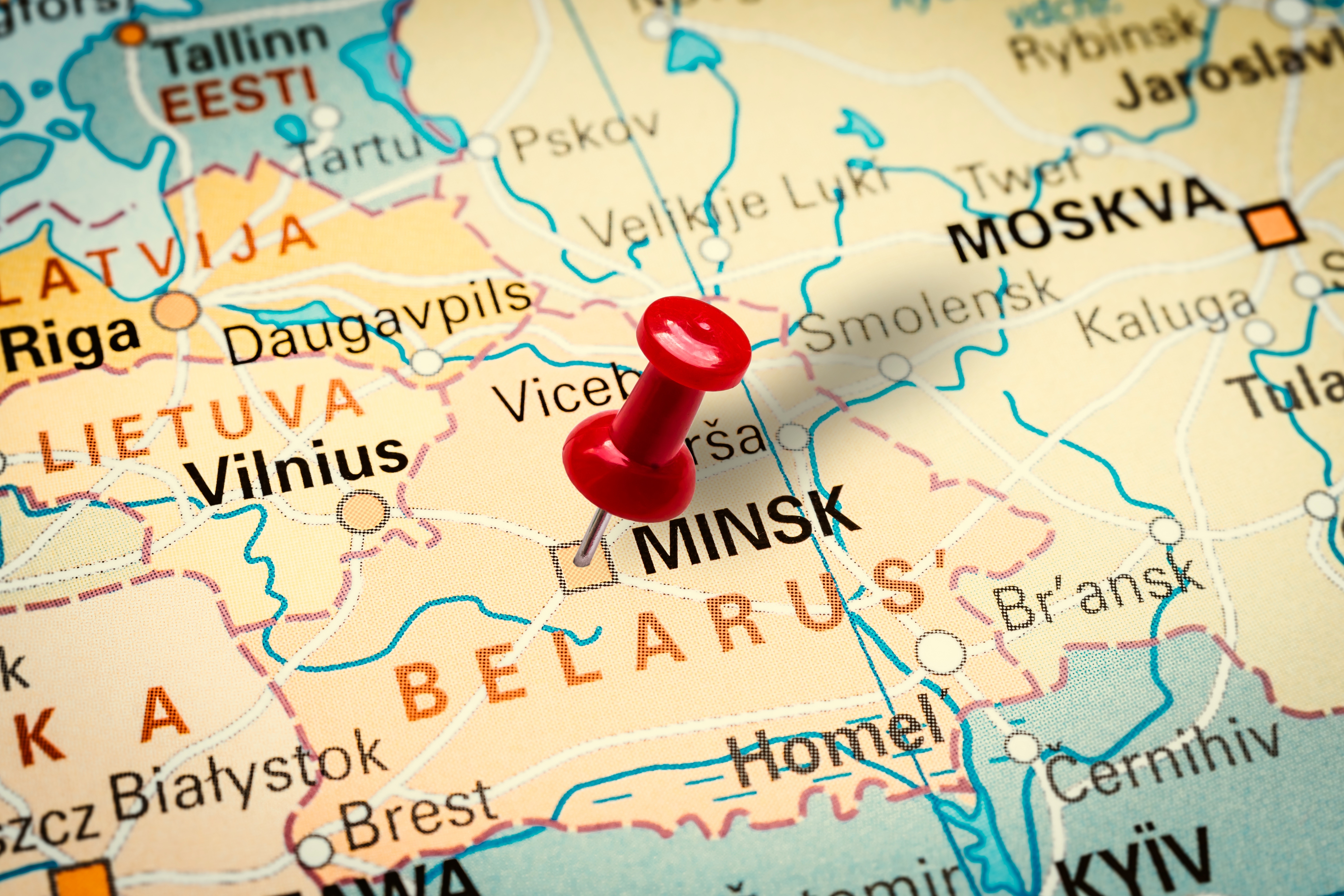
Yesterday (25 February), Belarus’ parliamentary elections got underway. Although not recognised as a democracy given the power of its president of two decades Aleksandr Lukashenko, Belarusians nevertheless have been casting votes for both local and parliamentary officials.
In light of Belarus’ strong connection to Russia and the consequential economic sanctions imposed, the IOE&IT Daily Update explored the country’s economic history and trade profile.
Elections
Belarus’ 2020 presidential election ended in mass protests after an estimated one in five people took to the streets to object to Lukashenko’s allegedly rigged victory over opponent Svetlana Tsikhanouskaya. The former teacher took over the leadership role from her husband following his imprisonment, which came after he announced his intent to stand in the elections.
The unrest led to the suspension of local council elections scheduled for 2022 as well as of parliamentary elections, which should have been held last year. These violations of democratic principle saw the EU introduce restrictions on high profile individuals.
Yesterday saw these votes finally take place, with Belarusians casting ballots for 12,000 council seats and 110 seats in Parliament’s lower house.
This election precedes the creation of a new body: the All-Belarusian People’s Assembly. Despite being referred to as “the highest body of democracy” by Lukashenko, he will be selecting the assembly’s membership committee, comprised of up to 15 members.
DW reports that of the 16 parties in existence during the previous elections, only four now remain, all having sworn their allegiance to Lukashenko.
Tsikhanouskaya, who continues to lead the an opposition government from Lithuania, told voters to boycott the elections, with her diplomatic adviser telling the FT: “We are sure no democratic country will recognise these non-elections”.
The notable front-runners are the Belaya Rus party, led by Alexander Radkov, a Lukashenko loyalist. Radkov has been sanctioned by both the EU and US for human rights breaches – during his time as education minister he closed Belarus’ European Humanities University and repressed student opposition.
Trade profile
Belarussian trade is still dominated by Russia, by far the country’s largest import and export partner. In 2021, Belarus sent $15.8bn worth of exports to Russia, and received $20.5bn in imports, ahead of its second largest import partner China at $3.5bn.
This trend has become more entrenched following Russia’s invasion of Ukraine two years ago, as the EU increased the volume of sanctions against Belarus for its support.
According to the Observatory of Economic Complexity, Belarus’ biggest export is ‘potash’ or potassic fertiliser, which accounted for $2.63bn of its export total in 2021. Although new figures have not been released, EU sanctions placed on potash rose to encompass all exports as of March 2022, when previously only 20% had been banned.
Cheese is one of Belarus’ leading exports, with over $1bn exported in 2021 – Belarus recently upped the minimum export price of cheese to Russia.
Other key exports from Belarus include refined oil, which involves high dependence on imports of Russian crude. Following the discovery of a store of petroleum in the South East in the 1960s, two refineries were built in nearby Mozyr and Naftan, estimated to have a capacity of 450,000 barrels per day.
However, sanctions introduced both before and after Russia’s invasion of Ukraine have led to reduced capacity, with S&P reporting both refineries lowered the amount of crude processed in 2022.
Further sanctions
In 2023, the EU and UK upped sanctions further, including a greater range of products and services.
This included an expansion of export restrictions on machinery, banknotes (denominated in both sterling and any official currency of the EU), and items that could be used to produce chemical and biological weapons.
Measures were also introduced to limit the provision of internet services offered by social media firms, internet access providers and app store operators.
Restrictions on imports from Belarus were also extended, including gold and gold jewellery (even gold processed overseas which incorporates Belarusian gold), in addition to cement, rubber and wood products.
UK-Belarus trade
Unsurprisingly, trade volumes have fallen significantly in recent years. According to Department for Business and Trade (DBT) data, bilateral trade fell 36.1%, from £385m to £246m, between September 2022 and September 2023.
However, the UK still sent exports worth £62m over this 12-month period, the majority of which (71%) were services. Despite UK intentions to reduce trade, the services figures still reflected a 22% increase on the preceding year, up £8m.
The UK received £184m in imports from Belarus over this period, a significant proportion of which (91%) were goods. All UK imports from Belarus fell between 2022 and 2023.



